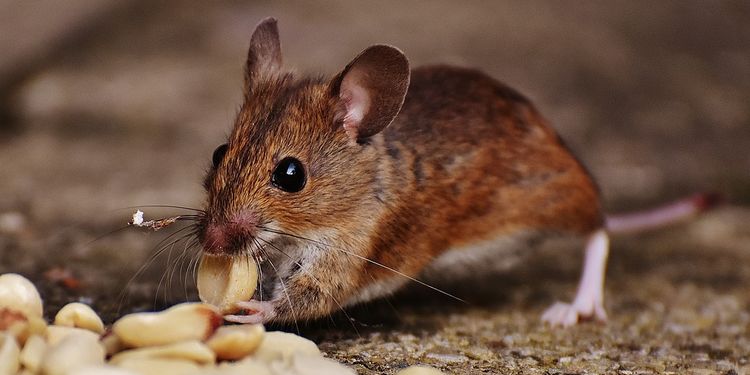Why Chewing Your Food Properly Can Transform Your Health

Food-chewing can bring out the lazy teenager in all of us.
If you’re anything like I used to be, you chew just enough to be able to swallow and don’t think much more about it!
Well, I’m here to tell you that you might want to start thinking more about how you chew your food— most importantly, how much. Chances are you’re not chewing your food nearly as much as optimal digestion and health requires.
It may not seem terribly important at first glance, but how you chew your food has the potential to radically change your health for the better!
How, you ask?
Let’s take a closer look.

Why Change How I Chew?
Chewing Kicks Off Digestion
The mechanical act of chewing, aka “mastication,” not only starts the digestive process, it’s a vital part of it as well.
Chewing breaks down food into smaller particles, making it much easier to swallow (which your esophagus thanks you for!) and increasing its surface area.
This means greater exposure to the digestive chemicals in saliva and the rest of the digestive tract, making it much easier to digest and absorb nutrients from.
Chewing Increases Food Exposure to Saliva
Chewing food also exposes it to your saliva, which is critical. Saliva both lubricates your food and contains enzymes that begin the digestive process of carbohydrates, sugars, and fats.
Coating your food with saliva further benefits digestion by relaxing the pylorus, the muscle connecting your stomach and small intestine. Ample saliva enables food to easily pass into your small intestine.

Chewing Triggers the Rest of the Digestive Process
Chewing is important because it signals the rest of your body to prepare for digestion.
The physical act of chewing signals the brain to send information to the GI tract to optimize digestion, tells the stomach to produce hydrochloric acid to help digest proteins, and signals the pancreas to be ready to secrete digestive enzymes into the small intestine.
Studies also show that chewing is part of the “cephalic phase” of digestion, during which you’re seeing, tasting, and smelling your food. A longer cephalic phase can lead to a greater release of messaging molecules essential to digestion, such as cholecystokinin, somatostatin, and neurotensin.

Your Gut Gets Stressed and Inflamed If You Don’t
Not chewing your food enough can cause improper digestion in the stomach, which can in turn lead to undigested food entering the small intestine. Undigested food in the intestines becomes an easy meal for bacteria and can promote digestive issues like gas, bloating, constipation, diarrhea, intestinal pain, and cramping.
It can also lead to a higher risk of more serious digestive issues such as bacterial overgrowth, food allergies and sensitivities, chronic inflammation, oxidative stress, and leaky gut.
Your Teeth Benefit
Chewing is also a good workout for your teeth, keeping them strong and healthy. The saliva created from chewing also helps wash away food particles, keeping your teeth clean!

How Do I Chew, Then?
For starters? A lot more!
Some people say you should chew a certain number of times for each bite, say 20, 50, or even 100 times. Non-conformist rebel that I am, I say a hard number is not the way to go.
After all, different foods require different amounts of chewing. Instead of sticking to a specific number, I’d suggest you chew each bite until it’s liquefied and you can’t tell what you’re eating by texture alone. For example, if you’re eating broccoli and chicken, keep chewing until you can’t tell which bits are broccoli stems, broccoli florets, or chicken.
This has served me as a helpful rule of thumb for determining how long I should chew before swallowing.
Chewing until your food is liquefied will ensure that your entire digestive process runs smoothly. Your food will be thoroughly broken down, coated in saliva, and easy to swallow, and your body will be well-prepared for digestion. And, of course, your teeth will get a great workout!

If you’re anything like me, you could probably also benefit by taking smaller bites (which are easier to chew), chewing slower, and making sure to finish and swallow one bite before taking another.
Chewing more slowly can help you lose weight and feel better, too. Chewing slowly has been shown to help with portion control and weight loss by giving your body the time it needs (usually 20 minutes or so) to alert your brain that you’re full.
Chewing more slowly also gives you the opportunity to actually taste and enjoy your food!
In fact, slowing down your eating is often given as a beginner’s exercise for learning mindfulness. Give it a try! You’d be surprised how easily you can access deep joy and gratitude just from slowing down and savoring each bite.
Summary
Chewing may seem like an insignificant task, but it’s vitally important to your health.
Chewing is something you do every day, multiple times a day— why not put in a little extra effort to make sure you’re doing it right?
It not only aids and improves the entire digestive process, it can help you stay fit and even help you connect more deeply with your body and increase feelings of gratitude and happiness.
Improving just this one habit could transform your health for the better!
